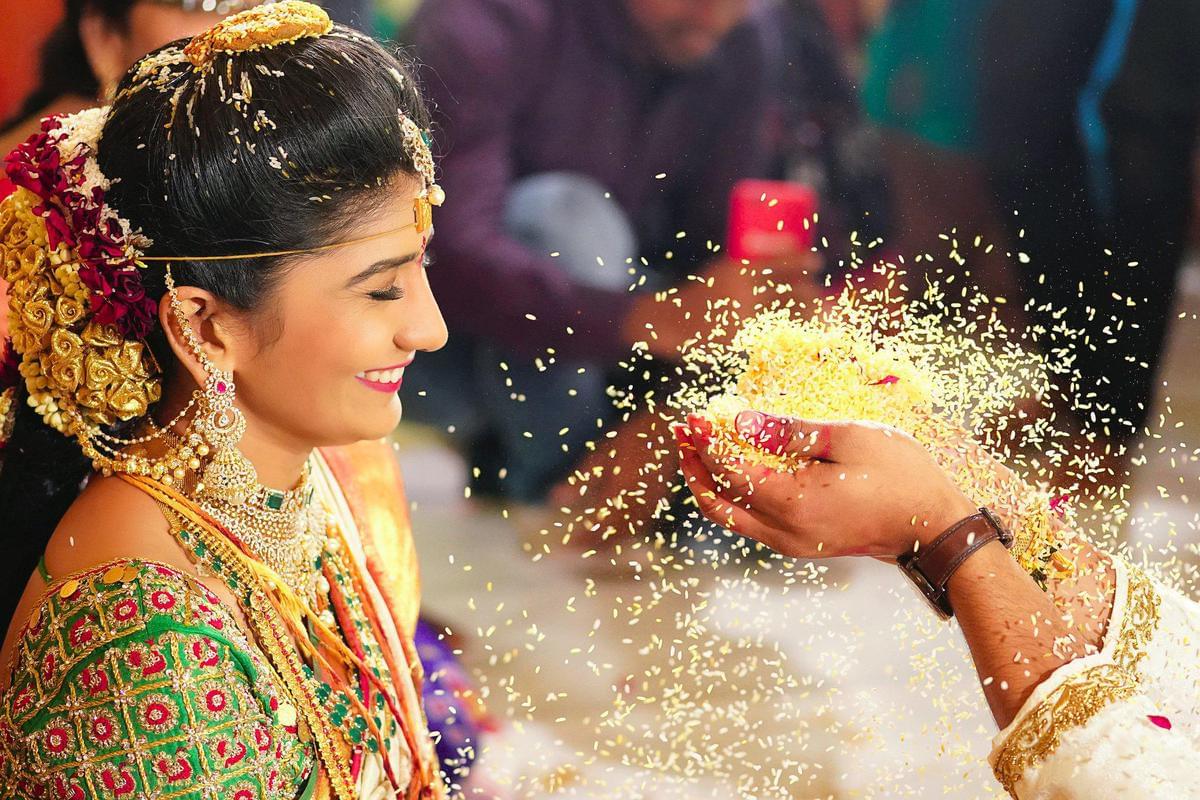The majority of the time, when a couple enters the world of holy matrimony, it is through one of the many ways they choose to commemorate their love. Weddings are usually a really special occasion, no matter where you are in the world. The concept of sharing love and happiness is a universal theme, despite the fact that traditions vary around the world. While certain customs could make you uncomfortable, others might astound you, and some even might appear a touch disrespectful. What takes place on wedding days all throughout the world will astound you. Luckily, these customs are intended to offer the couple success and wealth.
Let’s dissect the marital institution and shed some insight on how regional customs and ceremonies vary. Here are 15 of the most bizarre wedding customs in existence.
Sponsered4
1. The bride and groom use chainsaws in Germany
Baumstamm Sägen is a custom used by newlyweds in Germany where the couple must saw a log in half. Baumstamm Sägen represents the power of the pair when they encounter obstacles in their marriage because it is a task that requires two persons to complete.
2. Romanian bride is abducted
In Romania, a bride’s disappearance prior to the wedding does not indicate that she has changed her mind. On the other hand, it is customary for friends and relatives to “kidnap” the bride before the wedding. Similar to pretend play, the bride’s ransom must be paid by the husband in order to win her back. He may do this by making romantic gestures or by pouring champagne into the bride’s glass.
Sponsered4
3. Italy: Newlyweds receive nuts
While many of us associate “confetti” with colorful pieces of paper, in Italian, the word actually refers to sweetened almonds. They are given to wedding guests at the reception as favors and are intended to be tossed at the bride and groom. Coriandoli, the small pieces of paper, have taken their place in their position, though.
Sponsered4
4. Father in Kenya spits on the bride
If you attend a wedding in Kenya, don’t be surprised if the groomsman spits on the bride’s dress to bring good luck. Spitting on someone is considered a sign of respect among the Maasai people of Kenya. The spit is intended with the best of intentions, hoping not to curse the union.
5. India: The groom’s shoes are taken
Before seating for the pheras, it’s customary for the groom to take off his shoes in a traditional Hindu wedding. This is the time when the Joota Chupai custom is practiced. It’s a custom where the bride’s maids and cousins will frequently fool the groom by robbing him of his shoes and hiding them. The groom must bribe the women with money to return the shoes before the ceremony is through in order to obtain them back.
Sponsered4
6. China: The custom of the bride crying
Although while it’s customary to cry a little at wedding ceremonies, in some regions of China, the bride is compelled to practice. Brides from Tujia are supposed to cry for an hour every day for a month prior to the ceremony. Her mother joins her ten days into the process, and the bride’s grandma follows ten days later. The tradition, known as Zuo Tang in the western Sichuan region, dates back to the Warring States period of China. When the mother of a Zhao princess sobbed during her wedding.
Sponsered4
7. Family drinking habits in Japan
It may not seem strange to drink wine during a wedding, but in Japan, the san-san-kudo historical custom mandates that the family consume alcohol in unison. To unite the families, the bride and groom first take three sips from each of three flat sake cups, followed by their parents.
8. Korea: A goose is presented to the bride
On their wedding day, brides and grooms in Korea exchange wooden geese and ducks as a symbol of their devotion. Most newlyweds receive accessories for their new house or cash to start their new life together. In the past, grooms have often given their future mother-in-wild law’s ducks or geese. The monogamous animals stand in for the groom’s sincere devotion to his bride.
Sponsered4
9. The groom’s feet are pounded in South Korea
In some regions of South Korea, grooms are not allowed to leave with their new brides until their feet have been beaten. Following the ceremony, the groom’s groomsmen or family members take off his shoes, tie rope around his ankles, and then take turns beating his feet with a stick or, in rare cases, a dried fish. Fortunately, the ceremony is brief and is regarded as a humorous moment that aims to gauge the groom’s fortitude and character.
Sponsered4
10. Malaysia: The bridal couple cannot use the restroom
In Borneo, the Tidong people of Malaysia and Indonesia adhere to a custom that forbids the bride and groom from leaving their home or using the restroom for three whole days following their wedding ceremony. They are kept under constant guard and given very little access to food and drink. It is believed that failing to follow the ceremony will bring the bride and groom bad luck, which frequently manifests as adultery, a breakdown of their marriage, or the loss of their children.
11. Venezuela: The newlyweds sneak out of the celebration
It is customary for newlyweds in Venezuela to leave their wedding reception without saying farewell to their guests. It’s interesting that many think this custom brings luck.
Sponsered4
12. Peru: Single women look for love in a cake
You’ll adore this Peruvian wedding custom, solitary ladies. The sides of a typical Peruvian wedding cake are adorned with ribbons. Each ribbon is tied to a cake charm, but one particular ribbon is attached to a ring that looks like a wedding band. Peruvians think that if they serve you a slice of cake with a wedding ring inside, you will soon be getting married.
Sponsered4
13. Cuba: You must pay the bride to dance with her
Regardless of culture, it is customary for the bride to dance with her guests; nevertheless, in Cuba, the dance has a cost. The bride must have money pinned to her clothing by every man who dances with her. The goal is to assist the couple in covering the costs of their wedding and honeymoon.
14. Australia: Unique stones are provided for visitors to grasp
The custom of a unity bowl could be used during an Australian wedding ceremony. Visitors are given stones when they arrive, which they must carry throughout the ceremony. In order to honor their friends and family who attended, visitors are asked to deposit the stones in a gorgeous bowl that the couple keeps on display at their home after the event.
Sponsered4
15. Fiji: A whale tooth is mentioned in the proposal
In Fiji, when the groom requests permission, he frequently gives the bride’s father a sperm whale’s tooth in exchange. Although it is more prevalent in rural regions, this practice is carried out throughout Fiji. The word “holy” in Fijian refers to the tooth, also known as a tabua.
Even though we have no idea why some of these strange customs exist, they undoubtedly made us grin and made us fall in love with weddings all over again.
Sponsered4




